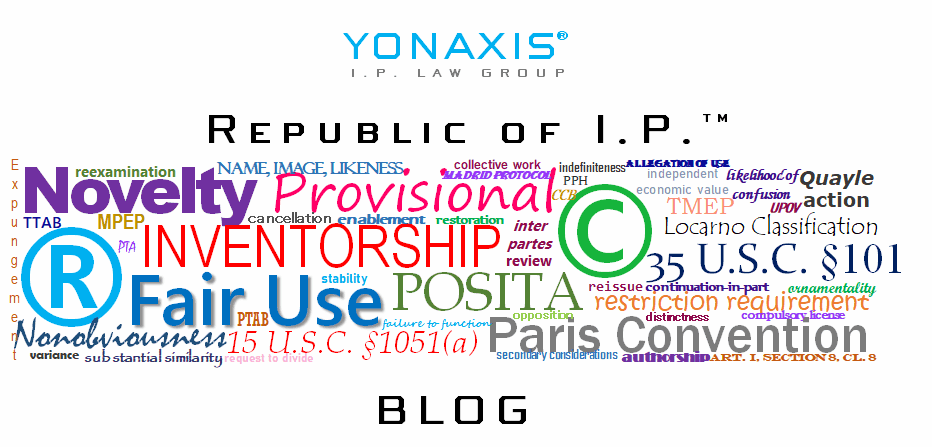On February 2, 2022, the Court of Appeals for the Federal Circuit affirmed in In re Vox Populi Registry Ltd.,[1] the decision of the USPTO’s Trademark Trial and Appeal Board (TTAB) refusing registration to .SUCKS as a service mark for Vox’s domain name registry services. However, the Fed Circuit agreed with the TTAB in that …
Category: trademark
New Public Page for Trademark Non-Use Petitions
On February 4, 2022, the United States Patent and Trademark Office released a new public page showing new ex parte expungement or reexamination petitions for failure to use the challenged mark in commerce. Since its implementation on December 21, 2021, there have been 20 petitions for expungement and 10 petitions for reexamination filed on non-used …
Senator Requests Study on Uniting Federal IP Offices Into Single Office
U.S. Senator Thom Tillis (R-NC) has requested the Administrative Conference of the United States, the federal agency tasked with making federal functions more efficient, to conduct a study into the feasibility of having a unified, singular federal office devoted to intellectual property, combining the registration and prosecution functions currently handled by both the United States …
USPTO Issues Sanctions Against Trademark Filing Entities (TFEs) for Fraudulent Filings
On January 25, 2022, the United States Patent and Trademark Office issued sanctions against a group of trademark filing entities (“TFEs”): Abtach, Ltd., 360 Digital Marketing LLC, and Retrocube LLC, including the officers – Azneem Bilwani, CEO, Salman Yousuf, COO, Muhammad Saad Iqbal, President of Abtach, and Irsa Faruqui, President of Retrocube (collectively “Abtach TFEs”). …
Trademark Scammer Sentenced
On September 15, 2021, the U.S. Department of Justice (DOJ) announced that a Latvian citizen was sentenced to more than four years in federal prison for masterminding a trademark mail fraud scheme. Rhett DeHart, Acting U.S. Attorney for the District of South Carolina, also announced that defendant Viktors Suhorukovs has been ordered to pay $4.5 …
Presidential Inauguration Day
This is something trivial, but important to the daily IP practice. Consistent with 5 U.S.C. §6103(c), which deems “January 20 of each fourth year after 1965, Inauguration Day, is a legal public holiday . . . . ,” the USPTO is closed. The Copyright Office is also closed for the presidential inauguration. Any deadlines that …
Consolidated Appropriations Act of 2021
On December 27, 2020, the Consolidated Appropriations Act of 2021, the annual defense spending bill, was signed into law. Focused on COVID-19 relief and funding the federal government operations, there are also several IP-related authorizations approved in the bill itself. First, the Copyright Alternative in Small Claims Enforcement Act of 2020 (CASE Act) creates a …
U.S. Patent No. 10,752,636 B2
U.S. Patent No. 10,752,636 B2 (‘636) issued on August 25, 2020, entitled ”HIV Inhibitor Compounds.” It was issued to inventors Elizabeth Bacon, Elbert Chin, Jeromy Cottell, Ashley Katana, Darryle Kato, John Link, Nathan Shapiro, Teresa Trejo Martin, and Zheng-Yu Yang. The applicant/assignee is Gilead Sciences, Inc., of Foster City, California. The ‘636 patent is a …
Arguing Takings of IP Rights is, Sadly, a Losing Proposition
The Takings Clause of the Fifth Amendment states that private property “shall not be taken for public use, without just compensation.”[1] Intellectual property rights – patents, trademarks, copyrights, and other IP – have long been considered property rights. This belief, however, has been tested by the Supreme Court’s reluctance to specifically define IP as a …
New Trademark Application Reveals Problems with Mad Rush for “Hot” Trends
A new trademark application for COVID-KUSH was filed with the U.S. Patent and Trademark Office (USPTO), on July 30, 2020. The applicant is Anthony Ariza dba Covid-Kush of Santa Clara, California. The identification of goods and services indicates it is a mark for use in International Class 30, for gelatin-based chewy candies; flavored, sweetened gelatin …
